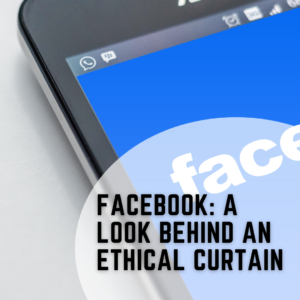 Do the keepers of social media, their social influencers and executive elites operate on a higher plane than us mere mortals? As a business ethics keynote speaker, business ethics consultant and book author, I was led to believe that the men and women of “Silicon Valley” were ethically, far ahead of us mere mortals. It might be wise for me to re-think that position.
Do the keepers of social media, their social influencers and executive elites operate on a higher plane than us mere mortals? As a business ethics keynote speaker, business ethics consultant and book author, I was led to believe that the men and women of “Silicon Valley” were ethically, far ahead of us mere mortals. It might be wise for me to re-think that position.
A re-surfaced email
Behind the curtain of the perfect Facebook (“Meta”) world, founder Mark Zuckerberg, a person of incredible wealth and power, is said to be a workplace bully; a literal “dictator” who allegedly badgers employees and most everyone around him. The problem, as in most stories that involve bullying, is that they are terribly difficult to prove.
Zuckerberg has been quoted as characterizing Facebook in this manner:
“We are a company that promotes openness and transparency, both in the world at large and here internally at Facebook.”
As a business ethics keynote speaker, business ethics consultant and book author, I have been privy to far too many executives whose public-facing personas are markedly different from who they really are.
In 2010 (a while back, I agree) an industry insider magazine called TechCrunch, came out with an article titled: “Facebook Is Secretly Building A Phone.” The presumed leak enraged Zuckerberg. Who wrote internally to the employees:
“Lots of you saw the TechCrunch story … claiming that we’re building a mobile phone. We’re not building a phone and I spoke at length … about what we’re actually doing — building ways to make all phones and apps more social.”
Fair enough
The article and Zuckerberg’s response to the article were basically innocuous. There might have been a hundred different responses to the presumed “leak,” but Zuckerberg sent out an angry missive to the entire workforce with the title line: “Please Resign.”
According to tech business writer Ariel Zilber (March 21, 2023):
“Confidential — Do Not Share,” began the message, which has gotten more than 3 million views since being posted on Internal Tech Emails’ Twitter account Sunday.
‘This was an act of betrayal, Zuckerberg raged. So I’m asking whoever leaked this to resign immediately, If you believe that it’s ever appropriate to leak internal information, you should leave.’”
However, what made the angry, internal email a thinly-veiled threat was Zuckerberg’s line:
“If you don’t resign, we will almost certainly find out who you are anyway…it is frustrating and destructive that anyone here thought is [sic] was okay to say this to anyone outside the company, the fact that the story was inaccurate doesn’t make it any better.”
He went on to say how he had to clean up the mess the article made and the competitive situation in the mobile space. He concluded his rant by explaining: “If we don’t [protect information], we screw over everyone working their asses off to change the world.”
What is your policy?
Facebook [now Meta] has internally had this secretive world where Zuckerberg ruled over it with an “iron fist.” In fact, an employee at Facebook was allegedly fired for saying just that in 2016.
The company has been labeled “a cult,” with widely spread accusations that it worked to influence elections and public opinion. The company has vehemently denied this, and yet many critics sharply disagree.
Ariel Zilber further wrote:
“(In the book) ‘Chaos Monkeys: Obscene Fortune and Random Failure in Silicon Valley’ that female workers at Facebook were told how to dress and that they had to avoid wearing skirts that were deemed too short lest they be ‘distracting’ to others.”
It leads me to ask if Facebook has any ethical standards regarding policy, or if policy is any standard Zuckerberg deems inappropriate?
To openly threaten a employee with “we will find out who you are,” to dictate skirt length, to fire someone for being critical of management, to deny that this publicly-traded company was involved in swaying public opinion talks to a lack of insight an policy.
If Facebook lacks policy, ethically, it is not up to Zuckerberg (a powerful man) to openly threaten an employee. If Zuckerberg is setting a dress code, it had better be specific and legal before posting it. If Meta is alleged to be meddling in elections, its shareholders had better be aware of it.
It is 2023, someone needs to ask your ethical standards and not be content with “we’re out to change the world.”
LEAVE YOUR COMMENTS!


